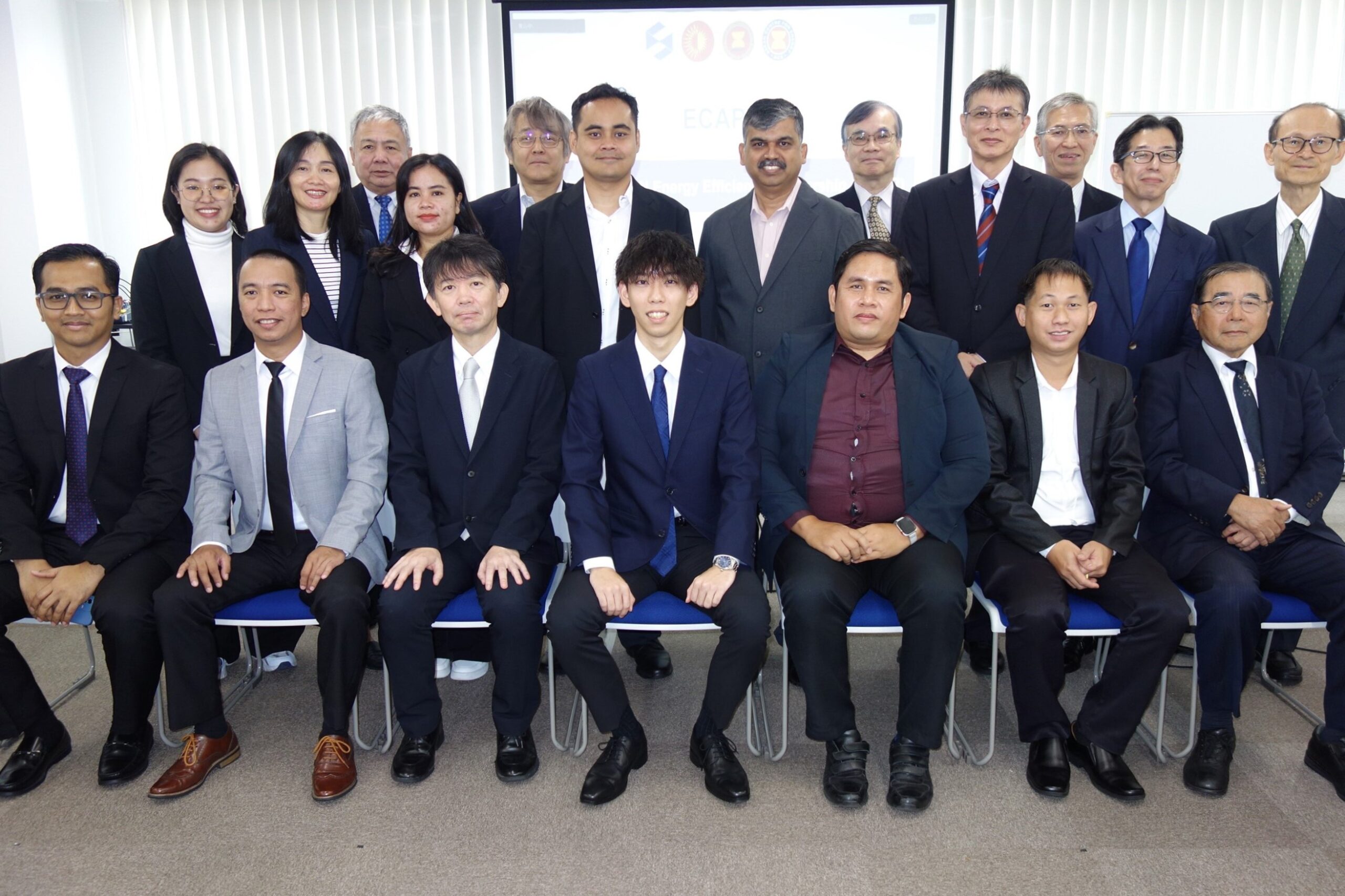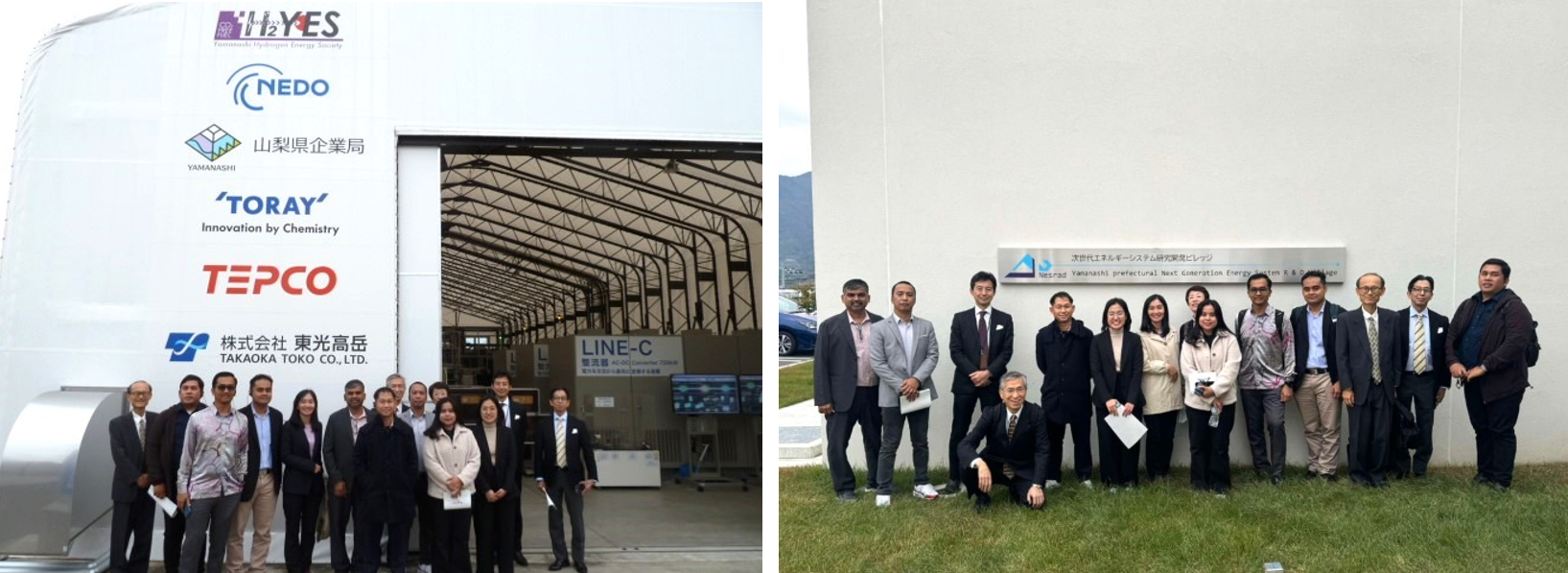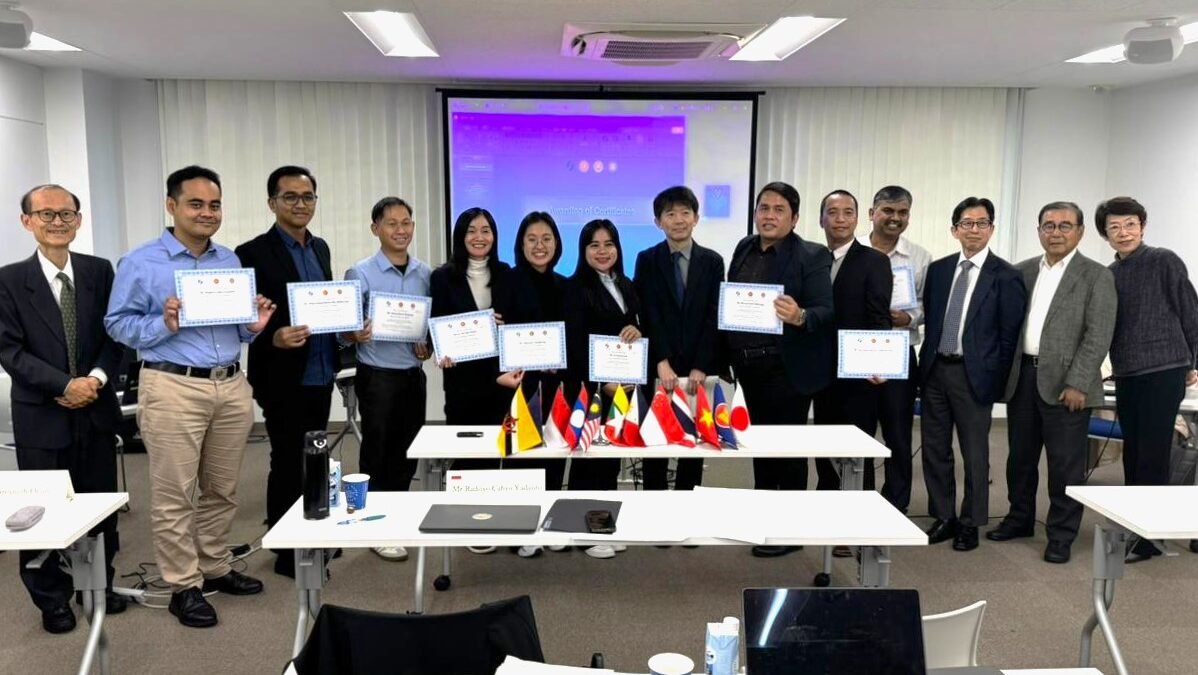Menu

Photo 1. Participants of ECAP 34 on Industry
The ASEAN Centre for Energy (ACE), in collaboration with the Energy Conservation Center Japan (ECCJ), co-organised the 34th Energy Conservation Workshop under the ASEAN-Japan Energy Efficiency Partnership (ECAP34) from 12-15 November 2024 in Tokyo, Japan. The Workshop was attended by representatives from ACE, ECCJ, and eight ASEAN Member States (AMS) – Cambodia, Indonesia, Lao PDR, Malaysia, the Philippines, Singapore, Thailand, and Viet Nam.
ECAP34 is a capacity-building workshop aimed at promoting energy-efficient technologies and best practices in the industrial sector to advance carbon neutrality (CN). The workshop focuses on developing effective policies and measures while disseminating the latest innovations in hydrogen technology. It features the introduction of Japan’s latest technologies and exemplary practices related to hydrogen for CN in the industrial sector, site visits to observe advanced hydrogen facility operations, and discussions on strategies and measures to achieve CN within ASEAN.

Photo 2. ECAP34 Lecture Session
On the first day, the workshop began with a keynote lecture delivered by the Ministry of Economy, Trade, and Industry (METI) of Japan. The presentation outlined Japan’s comprehensive policies and international strategies toward achieving CN, with a particular emphasis on the role of hydrogen as a key enabler in the transition to a low-carbon future. This was followed by a presentation by Rio Jon Piter Silitonga, Senior Officer of the Energy Efficiency and Conservation (CEE) Department at ACE, highlighting ASEAN’s latest policies and initiatives toward achieving carbon neutrality (CN).
Rio shared critical forward-looking cooperation opportunities centered on addressing ASEAN’s projected 2.6-fold energy demand increase by 2050, emphasising key technological solutions such as hydrogen, EVs, and smart energy systems, alongside policy harmonisation for power grid integration and innovative financing mechanisms to accelerate industrial decarbonization, particularly in energy-intensive sectors like basic metal and chemical industries which have potential for 30-40% energy reduction through advanced policies.
The subsequent session featured a lecture by Hydrogen Energy Systems Society of Japan (HESS), covering hydrogen technologies and their progress toward industrialisation. New Energy and Industrial Technology development Organization (NEDO) then provided insights into green innovation fund projects for hydrogen technologies and demonstration projects in ASEAN. The day concluded with a lecture by Chiyoda Corporation, focusing on large-scale storage and transportation technologies for hydrogen.
The second day of the workshop opened with country reports from each AMS, highlighting their respective measures to promote CN, followed by a lecture from the Tokyo Metropolitan Government, which showcased municipal initiatives to expand the use of hydrogen energy. JETRO then delivered a presentation on their activities supporting the promotion of CN in ASEAN. JETRO actively promotes Japan-ASEAN cooperation on carbon neutrality through strategic business matchmaking, and sustainable technology catalogues featuring 56 companies in Thailand and 86 solutions in Indonesia, while organising key events during the ASEAN Energy Business Forum (AEBF) and facilitating partnerships in renewable energy, EVs, hydrogen, and energy efficiency technologies, particularly demonstrated by the 681 decarbonisation projects by 305 Japanese companies in Indonesia that contribute to a carbon reduction of 46 million tons annually, with potential to expand similar successful partnership models to other ASEAN Member States.

Photo 3. ECAP34 Site Visits
On the third day, participants had the opportunity to visit a Power-to-Gas (P2G) project site. The Tokyo Electric Power Company (TEPCO) showcased its efforts to promote electrification across society by integrating renewable energy sources with hydrogen production, aiming to reduce reliance on fossil fuels and lower carbon emissions. The Yamanashi P2G Demonstration Project demonstrated how surplus solar energy is utilised to produce hydrogen, replacing fossil fuels in high-heat industrial applications and serving as a model for local carbon reduction. TEPCO also outlined its ambitious plans to scale up Power-to-Gas technology, targeting a 16 MW modular P2G system by 2025. These efforts are aimed at delivering carbon-neutral solutions for hard-to-electrify sectors, particularly in industrial and transportation applications.

Photo 4. ECAP34 Participants Group Discussion
On the final day of the Workshop, group discussions on CN measures were conducted, focusing on actionable strategies to advance regional efforts. Group A highlighted the need for further support in capacity building, policy development, and technical assistance, particularly in areas such as hydrogen, energy storage, carbon capture, and green building codes. Meanwhile, Group B emphasised strengthening legal frameworks by enhancing existing Energy Efficiency and Conservation (EE&C) laws and introducing new regulations to support energy efficiency measures. The groups proposed complementary financial mechanisms, with Group B suggesting the establishment of National Energy Development Funds and international loans, while Group A emphasised the need for technical assistance programs.
Additionally, international cooperation was encouraged to enable knowledge sharing and collaboration on renewable energy projects. Lastly, Group B underscored the importance of technical support through human resource development and research for innovative technologies, including electric vehicles, hydrogen-ammonia systems, solar, wind, and biomass. These discussions underscored the collective commitment to advancing CN measures across ASEAN. Looking ahead, the workshop identified several action items including, development of specific technical assistance for hydrogen and CCUS technologies, continuation of Carbon Neutrality Diagnosis for Industry under AJEEP Scheme 5, exploration of hydrogen technology for steelmaking in ECAP 2025, and enhanced capacity building and policy development support for AMS.

Photo 5. Certification Ceremony for ECAP 34 Participants
About Project:
ASEAN-Japan Energy Efficiency Partnership (AJEEP), as part of the ASEAN Senior Officials Meeting on Energy and Japan’s Ministry of Economy, Trade, and Industry (SOME-METI) Work Programme for 2024-2025, is a regional cooperation initiative between ASEAN and Japan, implemented by the ACE and ECCJ with financial support from METI. This partnership aims to strengthen the capacity of AMS and reduce disparities in EE&C policies and practices. ECAP itself began in 2012 as a capacity-building initiative for EE&C in AMS.
